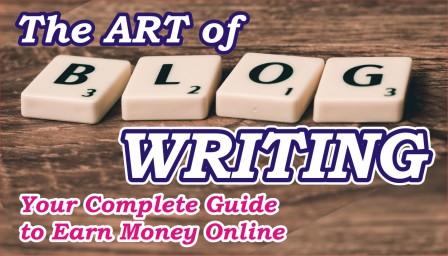Title: “Unleashing the Power of Blogging: Empowering Voices, Connecting Communities”
Introduction:
Section 1: Blogging Development
1.1 Introduction: From Online Journals to Broader Platforms
1.2 The Impact of Blogging on digital culture
1.3 Exploring Blogging Platforms Options
Section 2: Importance of Blogging
2.1 Making your voice heard through personal blogging
2.2 Branding yourself through business Blogging
2.3 Information Exchange and Education
2.4 Networking and Community Building
Section 3: Blogging Techniques
3.1 Determining Your Target Market
3.2 Creating engaging content
3.3 The value of visual appeal and the use of multimedia
3.4 Search Engine Optimization (SEO) is important for bloggers.
3.5 Interaction with Readers: Feedback and Comments.
Part 4: Monetizing Your Blog
4.1 Sponsored and Advertising Content
4.2 Product Recommendations and Affiliate Marketing
4.3 Production and Marketing of Digital Goods
4.4 Building an Email Marketing Subscriber Base
Section 5: Responsibility and Ethics in Blogging
5.1 Maintaining honesty and integrity
5.2 Copyright and Credit
5.3 Understanding Disclosures and Sponsored Content
5.4 Participating in Positive Dialogue: Moderation and Trolling
Section 6: The Future of Blogging
6.1 New Developments and Trends
6.2 Integration of Social Media and Microblogging
6.3 Video Blogging and Podcasting
6.4 Automation and AI in Blogging
Result:

The Full-length Masterpiece
Title: “Unleashing the Power of Blogging: Empowering Voices, Connecting Communities”
Introduction:
Blogging has become a powerful tool in the current digital age for people and organizations to express their views, share their knowledge, and network with like-minded people across the globe. Blogging has changed how information is shared and sparks conversation thanks to its adaptability and accessibility. This article explores the world of blogging, including its importance, impact, and the skill of creating engaging content that captures readers’ attention.
Section 1: The Development of Blogging
1.1 Beginnings:
Online Journals on Stronger Platforms Since its humble beginnings as online journals, blogging has evolved significantly. It originated in the late 1990s when people first started posting their experiences and thoughts online. Blogging has become a more sophisticated platform for content creation and distribution over time.
1.2 Impact of Blogging on Digital Culture:
Because it has democratized content creation, blogging has had a significant impact on digital culture. People who previously lacked platforms to share their thoughts and beliefs now have a voice. Bloggers have been instrumental in influencing public discourse, pushing established media, and elevating niche topics.
1.3 Exploring Options for Blogging Platforms:
Anyone blogging can easily create a blog now, including WordPress, Blogger, and Medium. These platforms include intuitive user interfaces, editable templates, and important content management tools. Bloggers can choose a platform based on their unique needs, level of technical expertise, and long-term goals.

Section 2: Importance of Blogging
2.1 Making Your Voice Heard Through Personal Blogging:
Personal blogging provides a platform for people to express themselves and communicate with a larger audience about their experiences, insights, and perspectives. Enables. It fosters community development, personal growth, and relationships with people who share similar values and experiences.
2.2 Branding Yourself Through Business Blogging:
Businesses have realized the effectiveness of blogging as a marketing tool. Businesses can become thought leaders in their fields, gain the trust of their audiences, and increase traffic to their websites by creating useful and educational content. Additionally, business blogging helps in search engine optimization (SEO) and increases brand visibility.
2.3 Information Sharing and Education:
By enabling universal access to information, blogging has transformed learning and information sharing. Through blog entries, tutorials and in-depth reviews, subject matter experts, scholars, and enthusiasts can contribute their knowledge. Blogs have become useful learning tools, providing insightful, helpful information on a variety of topics.
2.4 Networking and Community Building:
Communities based on common interests can be created through blogging. Through comments, social media engagements, and email subscriptions, bloggers can connect with their audience. Within the blogging community, these interactions foster networking opportunities, the development of relationships, and the facilitation of partnerships.
Section 3: Blogging Techniques:
3.1 Determining Your Target Market:
Before starting blogging it is important to know your target audience. Knowing your audience will help you create content, a tone, and a writing style that appeals to them. Your target audience can be effectively identified through market research, demographic analysis, and audience feedback tracking.
3.2 Creating Engaging Content:
Successful blogging starts with creating engaging content. Readers’ attention is drawn and maintained by interesting headlines, well-written content, and narrative perspective. Blog entries should be educational, specific, and beneficial to readers. Personal experiences, case studies, and relevant examples add depth and relevance to your content.
3.3 Value of Aesthetic Appeal:
The use of multimedia images, infographics, and videos are visual components that break up the text and enhance the reading experience. They support the message, give aesthetic appeal, and simplify difficult ideas. Bloggers need to ensure that the multimedia they use is of high quality, appropriate, and properly attributed.
3.4 Search Engine Optimization (SEO):
Search Engine Optimization (SEO) is important for bloggers. Basic SEO techniques can help your blog become more visible and bring in organic traffic. To improve search engine rankings, you should do keyword research, optimize your meta tags, add both internal and external links, and post new content frequently. Keeping SEO factors in mind, bloggers should prioritize offering value to readers.
3.5 Reader Interaction:
Feedback and Comments To build a thriving blogging community, it is important to promote reader interaction through comments and criticism. Prompt responses to comments, stimulating thoughtful discussions, and respecting reader feedback foster a sense of community and keep readers coming back. Engaged readers also offer insightful information about their interests and needs.

Part 4: Monetizing Your Blog
4.1 Sponsored and Advertised Content:
By placing ads on their blogs or working with companies to provide sponsored content, bloggers can earn money. Affiliate marketing networks and Google Adsense provide options to earn money based on impressions, clicks, or conversions. When using monetization tactics, it is crucial to maintain transparency and audience trust.
4.2 Product Recommendations and Affiliate Marketing:
Affiliate marketing involves paying a commission for each sale made through your recommendations for promoting goods or services. The success of affiliate marketing initiatives depends on choosing relevant and high-quality products, being open about the affiliate relationship, and making honest recommendations.
4.3 Creating and Marketing Digital Products:
By creating and marketing digital products such as e-books, online courses, or premium content, bloggers can leverage their knowledge. These products add value to readers while enabling bloggers to monetize their expertise directly. Teachable and Gumroad are two platforms that make it easy to create and distribute digital items.
4.4 Building an Email Marketing Subscriber Base:
Building an email list is essential to establishing a direct communication channel with your audience. Bloggers can encourage subscribers by providing unique content, newsletters, or free tools. Targeted advertising, personalized communication, and developing lasting connections with subscribers are all made possible by email marketing.
SECTION 5: RESPONSIBILITY AND ETHICS IN BLOGGING
5.1 Maintaining Integrity and Authenticity:
Truthfulness is the foundation of effective blogging. Maintaining reader trust involves being open about affiliations, sponsored content, and potential biases. Bloggers must be transparent about any conflicts of interest, present factual data, and refrain from dishonest practices that jeopardize their ethical character.
5.2 Copyright and Credit:
In the realm of blogging, respect for intellectual property rights is very important. When using third-party content, bloggers should be aware of copyright regulations and secure necessary permissions. Proper citation and attribution of the original source increase your blog’s credibility and prevent potential legal problems.
5.3 Understanding Disclosures and Sponsored Content:
Bloggers are required to inform their audience of any commercial contributions or content sponsorships they accept. Disclosures that are clear and unambiguous ensure transparency and prevent dishonest or fraudulent practices. If one wants to maintain ethical standards, it is very important to follow the rules set by the organizations or platforms that regulate advertising.
5.4 Participating in Positive Dialogue:
Moderation and trolling are essential to building a supportive and respectful community for bloggers. Enforcing comment moderation policies reduces the impact of trolls or unpleasant interactions and helps maintain a constructive dialogue. A reader-friendly environment can be created by fostering positive dialogue and respectful disagreement.

Section 6: The Future of Blogging
6.1 New developments and trends:
As technology advances, blogging continues to evolve. The future of blogging is being shaped by new trends including voice-driven content, artificial intelligence-generated content, and interactive formats.
6.2 Social Media Integration and Microblogging:
Microblogging channels such as Twitter, Instagram, and TikTok have grown in popularity because they allow users to share bite-sized content. Your audience can be expanded, and your content options more diverse, by integrating these platforms with traditional blogs.
6.3 Video blogging and podcasting:
As alternative methods of content development, podcasting, and video blogging are gaining popularity. Bloggers can adapt to different audience tastes and reach new audiences using these media.
6.4 Automation and AI in Blogging:
Blogging professionals can benefit from using artificial intelligence systems for tasks such as content creation, editing, and SEO optimization. By streamlining the process, automation enables bloggers to focus on producing high-quality content and interacting with their audience.
The Result:
Finally, blogging has revolutionized how we communicate online and spread knowledge and build communities. Many people have found their voice thanks to it, and it has also helped expand businesses and bring people from different backgrounds together. It’s important for bloggers to embrace new technology, maintain authenticity, and promote ethical interaction as the blogging landscape continues to change. Remember that the power of blogging lies in your ability to connect, inspire, and leave a lasting impression, whether you’re a seasoned blogger or just starting out.


A. A Respected Man
This is very much impressive and nice informative article. If one follow the steps he can surely succeed in blog writing. Thank you so much for your support.
Very well explained